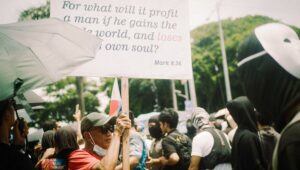The Alabama state supreme court recently made a significant ruling regarding frozen embryos created during fertility treatments. This decision, which came as a result of wrongful death cases brought forward by couples who had their embryos destroyed in an accident at a fertility clinic, has sparked discussions and concerns within the medical community.
Definition of Children
Citing anti-abortion language found in the Alabama state constitution, the justices determined that an 1872 state law allowing parents to sue over the death of a minor child also extends to unborn children. They emphasized that “unborn children are ‘children’ under the Act,” regardless of their developmental stage or physical location.
Implications for Fertility Treatments
The ruling raised questions about the implications it may have on fertility treatments moving forward. Justice Jay Mitchell highlighted that previous court decisions have established that fetuses lost during pregnancy are covered under Alabama’s Wrongful Death of a Minor Act, and this ruling extends that protection to frozen embryos.
Case Details
The plaintiffs involved in the Alabama case had undergone IVF treatments, resulting in the creation of multiple embryos. While some embryos were successfully implanted, leading to healthy births, others were stored at a facility. Tragically, a patient accessed this storage area and caused harm by mishandling the embryos, leading to their destruction.
This ruling has set a precedent for how frozen embryos are legally viewed in the state of Alabama, emphasizing the importance of protecting potential life even in its earliest stages.
Chief Justice Tom Parker’s Perspective
In a thought-provoking concurring opinion, Chief Justice Tom Parker referenced the Bible to delve into the concept of “the sanctity of unborn life” as outlined in the state constitution. He emphasized that every human being, even before birth, is a reflection of God’s image, and their existence should not be extinguished without disregarding His divine glory.
Dissenting Viewpoint by Justice Greg Cook
On the opposing end, Justice Greg Cook expressed his dissent by noting that the 1872 law lacked a clear definition for “minor child” and was being interpreted beyond its original scope to include frozen embryos. He raised concerns regarding the majority opinion’s unprecedented stance, highlighting that no court in the nation had previously supported such a conclusion. Furthermore, Cook warned that this ruling could potentially halt the creation of frozen embryos through in vitro fertilization (IVF) in Alabama.


